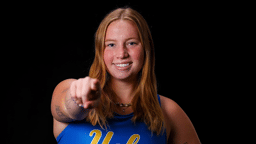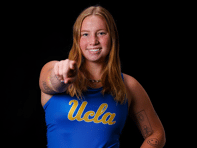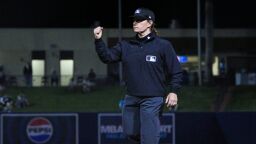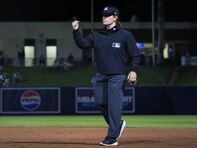What was supposed to be one of the happiest days of my life quickly turned into my worst nightmare as my mom fell silent on the other end of the phone.
It was June 26, 2015 — the day the U.S. Supreme Court ruled in favor of gay marriage — and I had just told her, “I am gay.”
Three short words and six letters changed my life in that moment.
My parents were devastated. They didn’t understand how their son, who had dated girls throughout high school and college, had suddenly now just told them he had been in a secret relationship for more than a year with his boyfriend, Zack.
They thought it was a phase. They thought there was somewhere I could go, or something I could do to no longer be gay. They thought it was a lifestyle. They thought I had a choice.
What confused my parents even more was that I had an extremely close bond with them throughout my childhood growing up in a Maryland suburb just outside of Washington, D.C. It didn’t make sense to them that I could harbor this secret for so long when we spoke at length nearly every day.
At the time I told my parents, I had just graduated from Penn State. I didn’t have a job lined up, but it was clear that I was not welcome as my authentic self at the house I grew up in.
The next few months were extremely tough. I questioned everything about my life. Should I have never come out? Would my parents be happier if I wasn’t born? Would it ever get better?
I suppressed an unhealthy amount of anger and sadness. I lied to friends when they asked if I was OK. I didn’t trust anyone. How could you? When those you loved the most were disappointed in you just for being you.
I was lost.
My boyfriend’s family had been incredibly supportive of him when he told them about our relationship. Thankfully, they offered their home for me to stay in as I tried to find myself and pick up the pieces. It remains a debt that I can never fully repay them for.
Time passed slowly. I barely spoke with my parents.

The day before Thanksgiving later that year, I learned the Philadelphia 76ers were offering me an internship position within their Social Responsibility team. At a time in my life where I felt so much exclusion, it felt immensely gratifying to be wanted. The next day, I spent the first Thanksgiving of my life away from my family, which would become normal.
I officially started my first professional job with the 76ers in January 2016. Nerves set in when it came to sharing my sexuality with those in the office. It had barely been six months since I fully came out, and the fear of rejection pushed itself squarely to the forefront of my mind.
Colleagues probably had their suspicions, but I just wasn’t ready to talk about it. I lied and said my family relocated to Pennsylvania after my graduation from Penn State. Any questions about relationships or love interests were ferociously avoided.
A common misconception about the coming out journey is that once you’re out of the closet, it’s easy to start living as your authentic self.
A common misconception about the coming out journey is that once you’re out of the closet, it’s easy to start living as your authentic self. The toll it puts on your mind to pretend to be someone you’re not lingers. It affects your confidence, it affects your perceived self-worth, it affects everything.
It wasn’t until I was hired full-time at the 76ers that I slowly began hinting to colleagues about my sexuality and talking about my boyfriend. This had nothing to do with me worrying about being gay and the potential impact of transitioning to a full-time role. It was because I was still discovering myself and my own comfort level with living an out life.
Everyone whom I have shared my story with at the 76ers has been incredibly supportive of me. I attribute that inclusive environment to the work of our organization’s leadership team, including CEO Scott O’Neil, President Chris Heck, Chief Operating Officer Lara Price and Chief Marketing Officer Katie O’Reilly.
Amy Hever, who has led our Social Responsibility team since I started with the team, has not only been a mentor of mine but also trusted me to create the 76ers’ Pride platform. Having the opportunity to craft how one of the most iconic professional sports franchises engages with its local LGBT community is something I never imagined possible for myself.
We marched in our first Philly Pride Parade as an organization in 2017. Our participation has evolved each season, and we had more than 50 staff members join us this year as we rode in a 24-foot truck with rainbow 76ers banners hanging from each side.

I could not be more honored to lead our organization’s LGBT charge and to work for a team that supports everyone. I will never forget seeing our staff, including Heck and members of our Basketball Operations team, and how much they enjoyed representing our team and supporting the LGBT community at the same time.
As part of our Pride program’s evolution, we piloted a new event this year and hosted a closed-door community conversation and basketball clinic with Jason Collins for an organization that serves LGBT youth in the area.

It was emotional to hear young people powerfully sharing their journeys in a safe space with one another. For them to know there are people who can relate and have gone through the same thing is incredibly important.
For me, it has been a trying experience of losing the bond I had with my parents. Since the immediate months following my coming out to them, we have taken small steps toward mending our relationship. It remains largely fractured, and I wonder if it will ever heal.
I often think about my 15-year-old self and how much I was hurting by hiding who I was — trying to live my life the way I thought people wanted me to. I harbored so much hatred of myself for being attracted to men, for not being “normal.” I had truly convinced myself I would marry a woman and no one would ever know the true me.
I can’t help but think of how proud that lost, closeted teenager would be to see how far we have come together.
Lee Cary, 26, serves as Social Responsibility Manager for the Philadelphia 76ers. He graduated from Penn State University in 2015 with a major in Print Journalism. He can be reached on Instagram or Twitter or by email ([email protected]).
Story editor: Jim Buzinski
If you are an out LGBTQ person in sports and want to tell your story, email Jim ([email protected]).







































